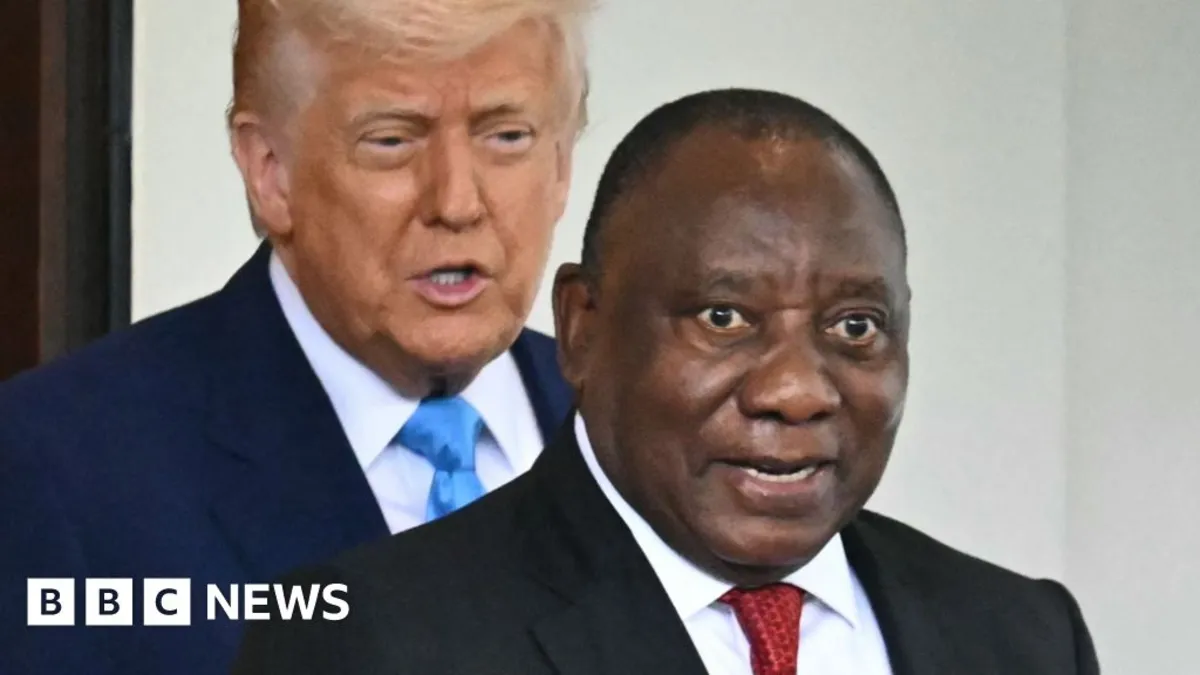
The South African government has voiced strong criticism against the United States for its recent decision to prioritize refugee applications from white Afrikaners. Officials argue that the claims of a so-called white genocide in South Africa have been widely discredited and lack credible evidence. This criticism comes in light of an open letter published by notable members of the Afrikaner community, which was released earlier this week, rejecting the narrative of widespread persecution against white South Africans.
Among the signatories of the letter, many labeled the US relocation scheme as racist, emphasizing that the limited number of white South African Afrikaners expressing interest in moving to the US serves as a clear indication that they are not facing persecution. The South African government underscored that the current situation for white Afrikaners does not support the claims being made by US officials.
On Thursday, the administration of former President Donald Trump announced its lowest annual cap on refugees in history, setting the limit at just 7,500 applicants. The exact number of white South Africans who have been admitted through this US refugee scheme remains unspecified. Additionally, the latest crime statistics from South Africa do not indicate that white individuals are disproportionately falling victim to violent crimes compared to other racial groups.
Earlier this year, President Trump extended an offer of refugee status to Afrikaners, who predominantly descend from Dutch and French settlers. This offer followed the signing of a law by South African President Cyril Ramaphosa, which permits the government to seize land without compensation in specific cases. This law has stirred considerable controversy and has been a focal point in discussions surrounding racial tensions in South Africa.
The question of whether there is a genocide of white South Africans, as claimed by Trump, warrants careful examination. The South African land reform law, which has inflamed discussions, aims to address historical injustices concerning land ownership. It is crucial to understand the context and implications of these policies to properly assess the situation.
Most privately owned farmland in South Africa is held by white South Africans, who constitute just over 7% of the national population. The narrative of victimhood has been further complicated by political tensions, including the expulsion of South Africa's ambassador to Washington, Ebrahim Rasool, who accused Trump of promoting a narrative of white supremacy.
In May, during a meeting in the Oval Office, Trump confronted President Ramaphosa, asserting that white farmers in South Africa were being killed and persecuted. He presented a photograph that he claimed depicted body bags containing the remains of white individuals in South Africa. However, the Reuters news agency later identified this photo as being taken in the war-torn Democratic Republic of Congo, thousands of miles away from South Africa. The White House did not address the misidentification of the image.
Furthermore, the White House showcased a video purportedly depicting burial sites for murdered white farmers. Subsequent investigations revealed that the footage was from a 2020 protest, where crosses symbolized farmers killed over multiple years, not a current crisis.
The ongoing debate surrounding the treatment of white Afrikaners in South Africa and the US's response highlights the complexities of race relations and political narratives in both countries. As discussions continue, it is essential to rely on accurate information and credible evidence to understand the realities facing different communities in South Africa.